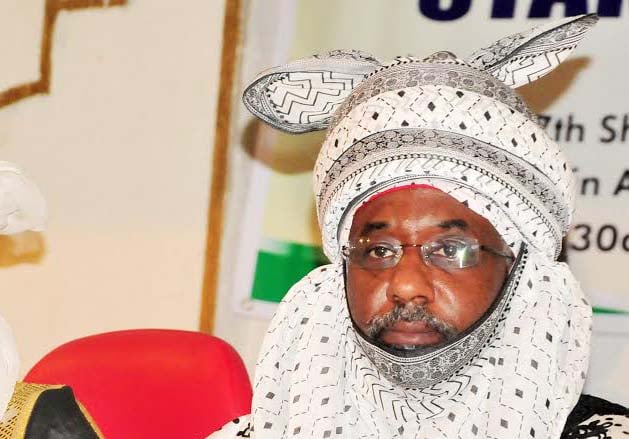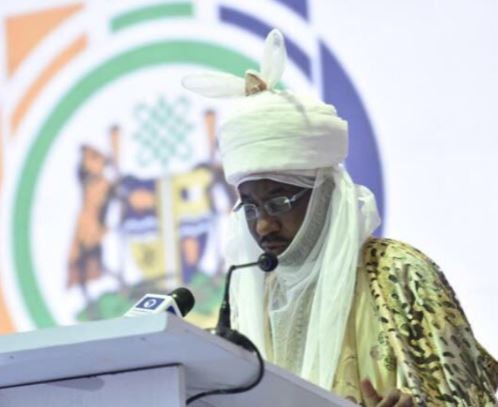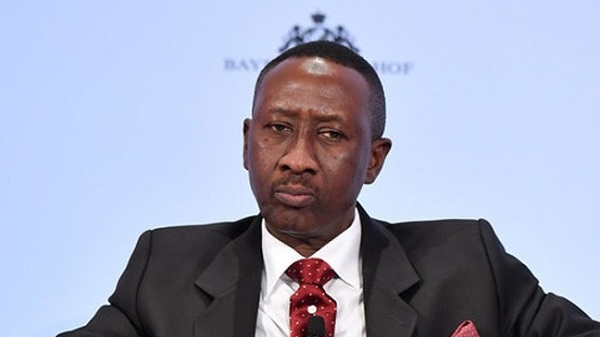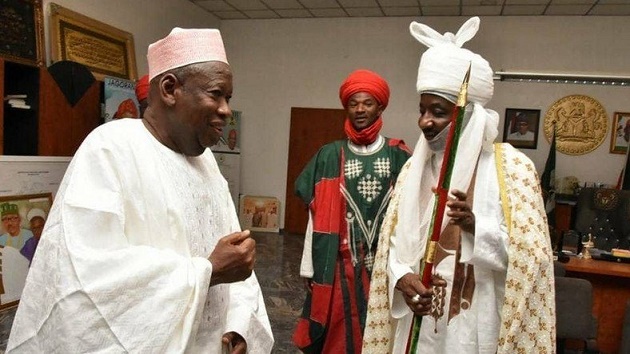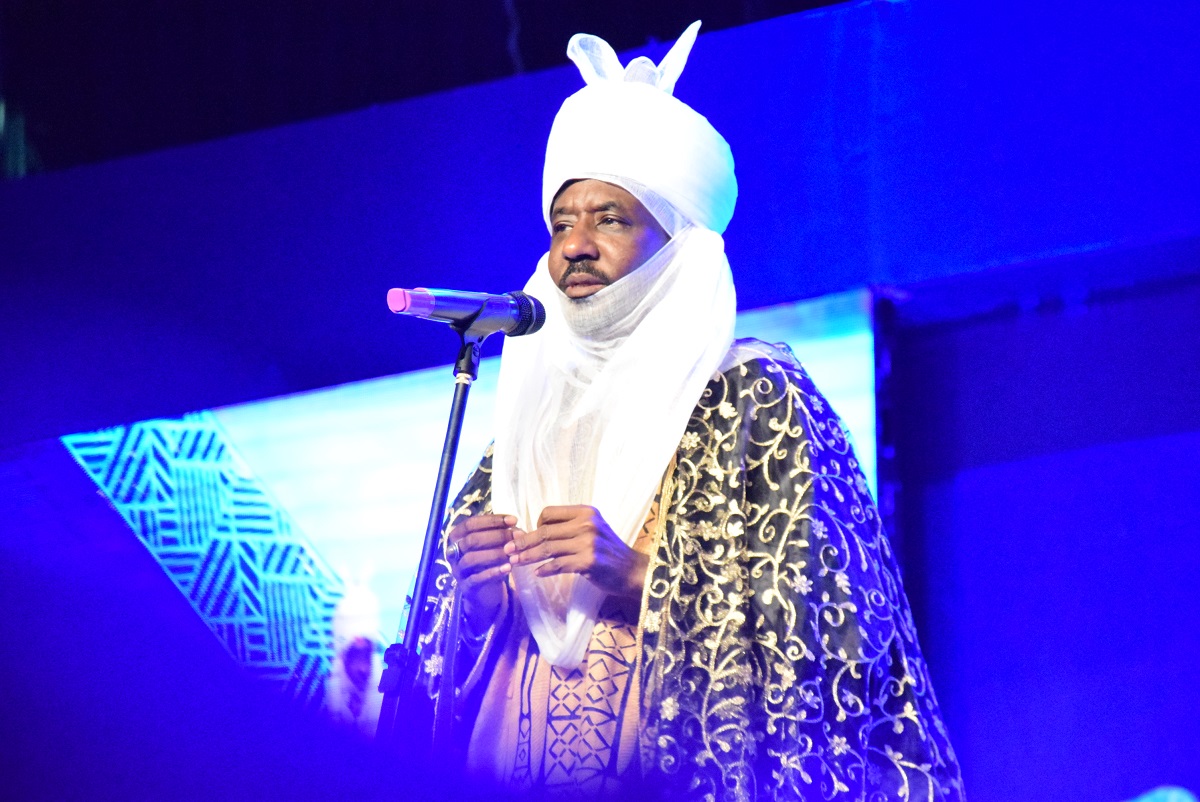The dethronement of Alhaji Muhammad Sanusi as the 14th Emir of Kano did not take many people by surprise. The surprising thing for some people is that he lasted as long as he did on the throne. In fact there were rumours that Rabiu Kwankwaso, who as Governor of Kano State made him the Emir in 2014, issued four queries to him before his term of office expired in 2015.
Predictions that Sanusi would not last long as Emir had nothing to do with his ability – for he is without any doubt a very gifted man.
I will like to quote copiously from an article I wrote on him in November 2009 (at the height of his banking reforms as the CBN Governor) entitled ‘Sanusi: A Radical in a Conservative Job’:
“Sanusi Lamido Sanusi is a very brilliant man. He writes the English language with remarkable authority, and even speaks it better. This could however be both an asset and a liability. Too much love of ‘grammar’ (turenci) could lead to an undue love for the podium and limelight, with attendant risks of gaffes in moments of rhetorical flourishes…
Advertisement
“At an event earlier this year in London to talk about the reforms in the banking sector, I asked Sanusi, if, professionally speaking, he saw a tension between where he now found himself, and where in his heart he felt he ought to be. I have read a few of Sanusi’s writings on Gamji.com and never ceased to admire his brilliance. I also always felt his ‘natural’ calling would be as a radical academic.
“Sanusi said he did not consider himself a radical but admitted that when he was in merchant banking, he did feel that tension.
“Despite his protestations, I am inclined to see him as a ‘radical’ or ‘revolutionist’ – in the sense of someone who favours extreme or fundamental changes in the way the society is organised. As with most revolutionists, Sanusi’s approaches to complex issues tend to be simplistic, and as the contradictions in his chosen options become obvious, the proffered solutions tend to appear contradictory or hastily taken. Consider the following examples:
Advertisement
“In what would appear to be a reckless outburst of emotions, Sanusi was quoted as saying that the sacked bank executives now standing trial at the various courts in the country deserved to die by firing squad for eroding public confidence and raping the institutions that were entrusted to their care through reckless credit and loan administration processes . Sanusi was later to recant, perhaps after he realised the enormity of the statement. He now claimed that Nigerian bankers are honest, hardworking professionals and not the crooks he had made them to appear….
“Virtually every major move since Sanusi became the helmsman of the apex bank, including the publication of the list of bank debtors, has been dogged by self-inflicted controversy, with the CBN often admitting errors.”
I have written several other articles on Sanusi and my views of him have remained relatively unchanged – though I revised my views of him as a ‘radical’ or ‘revolutionist’ to a ‘non-conformist’. There is a major difference between a non-conformist and a radical/revolutionist: while a ‘non-conformist is a person who does not conform to prevailing ideas or practices in their behaviour or views, a ‘radical’ or ‘revolutionist’ wants a fundamental reorganization of the society. In essence while a non-conformist will find it difficult to work within establishment confines ring-fenced by norms and rules of acceptable behaviour (it doesn’t matter whether that establishment is made up of elites, progressives or even members of the same political party or religious group), a revolutionist or radical may be able to work within establishment confines with people who share same beliefs and principles. For instance when the late Alhaji Shehu Shagari, the country’s Second Republic President reportedly said that the late Aminu Kano would still go on protest even if he was made President of the country, he was making a statement about what it meant for someone to be a non-conformist. A radical or revolutionist (or revolutionary) on the other hand often finds succour in the company of people who share the same ideals, and is therefore not a non-conformist in such a group. To be a radical or revolutionist also implies a rejection of bourgeois and ostentatious life styles in solidarity with the people. No one has ever associated Sanusi with a frugal or bohemian life style.
In late 2013, Lamido Sanusi, as the CBN Governor wrote to the Jonathan government claiming that the state oil company, the NNPC, had failed to remit $20bn to the government (he subsequently changed the figure a few times). The letter was leaked to Reuters and to some local media, which embarrassed the government, and made it turn against the CBN Governor. The feeling was that if his allegations were made in good faith, why would he leak it to the press when he had channels of communicating with the government?. As the Jonathan government came strongly after him, Sanusi also ramped up his criticisms of the corruption against the government, warming himself into the waiting arms of the then opposition APC which happily appropriated him and marketed him as voice of courage who spoke truth to power. Remarkably those allegations against the Jonathan government and his subsequent dalliance with the APC, paved the way for him to realize his life-long ambition of being Emir of Kano because after the death of Ado Bayero I, the leading lights of the APC reportedly prevailed on Governor Kwankwaso, (who like Sanusi was also a vociferous critic of the Jonathan government), to make him Emir.
Advertisement
After Ganduje succeeded Kwankwaso as Governor, Sanusi also had running battles with him. He took turns to criticise not just the Kano state government but also the federal government– allegedly despite having channels of communications with these governments. While some call such outspokenness as ‘speaking truth to power’, I believe there is a world of difference between courage and bravado and between speaking truth to power and courting martyrdom. While a relatively unknown public intellectual can be overlooked for taking pot shots at the government of the day, many governments across the world will be less inclined to overlook pungent criticisms from a respected public figure like the Emir whose criticisms can reverberate beyond the borders of the country. In essence we can discuss whether it is courage or stupidity to stand in front of a moving train. Usually public officials (and the Emir is a public official because he is appointed and sustained by the Kano State government) avoid repeated frontal criticisms of governments, preferring to do so diagonally or sideways in the manner of an old woman using deceptive strategies to catch a wild fowl.
In the 2019 governorship election in Kano, Sanusi reportedly barely concealed his partisan support for Ganduje’s main PDP opponent. Since politics is a game of winner takes-all, and some play their politics without any morality or forgiveness, it became obvious that Ganduje who was eventually proclaimed the winner of the election, would try to exert his pound of flesh. Here again Sanusi demonstrated that he is a master of glorious exit. Rather than feel cowed by the attempts by the Kano government to whittle down his influence and humiliate him such as by splitting Kano state into five emirates, he ramped up his criticisms of not only the Buhari and the Ganduje governments but also of the entire Northern socio-political system. He criticised the North for not paying attention to education, for people procreating more children than they can cater for, and for apparently relying on a quota system. While these criticisms endeared him to the social media activists, a section of the Northern educated elements and the Southern critics of the government, they alienated him from the Northern establishment who felt that his criticism of the Northern socio-political system was playing to the gallery. Sanusi saw his dethronement coming but he ensured that he would exit in a blaze of glory – just as he got bigger after being sacked as the CBN Governor by the Jonathan government.
Sanusi has been dethroned but certainly the last has not been heard of him. He will not keep quiet and cannot keep quiet. Already his legal team is challenging his dethronement and banishment in court. In his recorded speech after his dethronement, he showed no bitterness and said he had accepted it as the will of Allah. My prediction is that Ganduje might have scored a pyrrhic victory by that dethronement because despite the fact that Sanusi literally courted the dethronement, the manner of the exit will ensure that he will grow even bigger in reputation – at the expense of Ganduje. But Sanusi, whatever he becomes next, will always at heart remain a non-conformist- and this must never be confused with being a ‘progressive’, ‘radical’, ‘revolutionary’ or any of such monikers.
Email: [email protected]
Advertisement
Twitter: @JideoforAdibe
Advertisement
Views expressed by contributors are strictly personal and not of TheCable.
Add a comment

